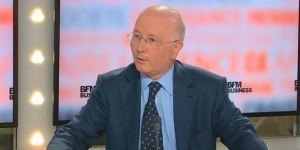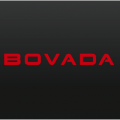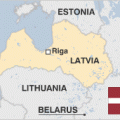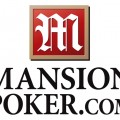
French Online Gambling Boss Explains Complicated ARJEL Environment

ARJEL President Charles Coppolani believes the French online gambling and Internet poker market would expand if politicians took the necessary measures to make the climate more favorable to players and operators. (Image: bfmtv.com)
French online gambling is overseen by the Regulatory Authority for Online Gaming (ARJEL), the ruling organization responsible for imposing a series of strict and sometimes puzzling regulations that often limit the market’s full potential.
ARJEL President Charles Coppolani attempted to clear some of the confusion earlier this month at the International Association of Gaming Regulators (IAGR) by explaining both the strengths and weaknesses to his country’s Internet gambling execution.
From explaining that France’s national regulatory configuration stems from the nationwide attitude towards gambling to listing the biggest hurdles facing his authority, Coppolani left little questions unanswered.
Problem Number One: Liquidity
Any game not encompassing some sort of skill is banned in France, meaning popular table games like roulette, slots, and blackjack are not permitted.
That condition has led to poker becoming the go-to table for gamblers across the country when visiting land-based casinos.
Unfortunately online, there’s simply not enough players.
Coppolani has repeatedly called for politicians in Paris to lift the online gambling walls confining the market to only French citizens in order to share player liquidity internationally. “The priorities of the political power are often in contradiction with its proposals,” he said.
The latest version of the Projet de loi pour une République numérique, the so-called Digital Bill, has failed to include provisions to open the gates to sharing player pools across boarders, a motion Finance Minister Christian Eckert had assured French online gambling regulators would be admitted.
In an unprecedented move, Eckert and the National Assembly listened to public opinion on the proposed legislation and accepted modifications based on feedback from citizens.
Per the latest seven-day averages from PokerScout, Winamax continues to control the market with 2,200 players, but PokerStars is trailing closely with 1,400. For reference, PokerStars‘ dot-com network has averaged over 26,000 players during the same period.
Fat Tax
The other pressing issue combatting a more robust French online poker enterprise is the current tax structure being levied on each pot.
Unlike the vast majority of other jurisdictions, France tariffs each and every single hand rather than simply taxing a game’s gross revenues.
As if paying taxes on each hand weren’t enough, France also features exorbitant “market entry costs for operators” according to Coppolani. Corporations are then mandated to pay 33 percent tax on all incomes received.
Due to the unfavorable tax situation, a large faction of online poker players have moved to offshore and illegal platforms. Studies have estimated that upwards of 50 percent of all Internet poker players in France gamble on rogue networks free of the government’s oversight.
Home to 67 million people, less than 5,000 playing poker online weekly in France certainly seems to support the notion that offshore networks are thriving.
Coppolani believes that changes by the government to allow his authority to enforce more favorable regulations would reap substantial rewards. Unfortunately, those changes seem unlikely, Coppolani saying that the “the political power is not quite ready to give the regulator” his wishes.















0 Comments